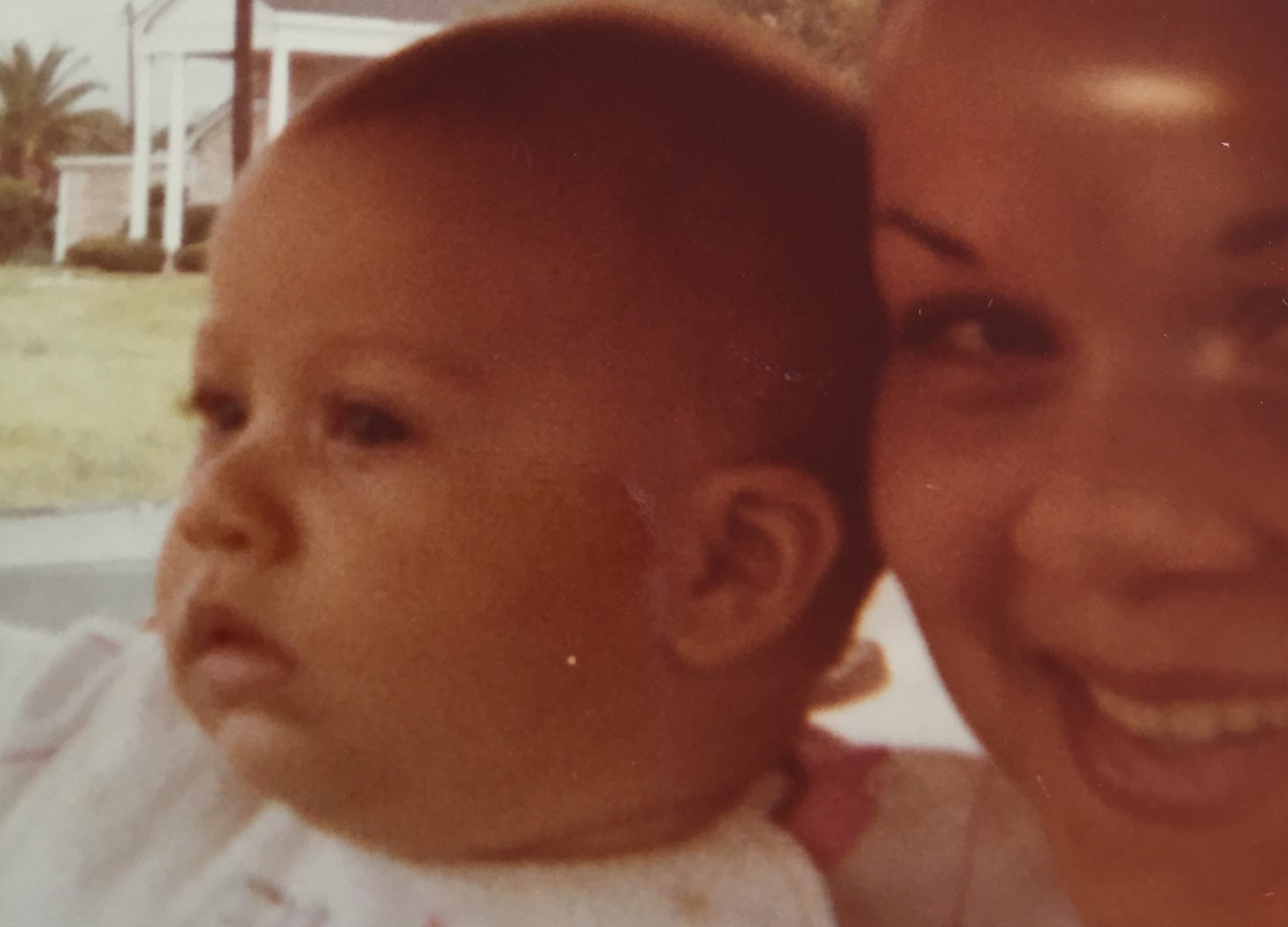Motherless mothers: "Our mothering and our mourning are intertwined"
There’s no antenatal class for being a 'motherless mother'
Adina Belloli lost her mother at six months old, when she was killed by a drunk driver.
“She was just down the road, going to the supermarket,” Belloli tells The Female Lead. “Obviously, it’s changed the trajectory of my whole life.”
Growing up, Belloli was asked to create Mother’s Day cards at school, by teachers who would never acknowledge her situation. She’d make a card for her mum, then give it to her dad. It was the easiest way to get through the day. As an adult, she would avoid engaging with Mother’s Day altogether.
Years later, when she had her own first child, becoming a parent prompted an intense surge of grief for her own mother. “There's this profound loneliness, and a feeling that you are having a very unique experience of mothering. A lot of the books and things just don't speak to you,” Belloli explains.
“I don't have the luxury of being able to find out how old I was when I crawled, all of those kinds of things. I had anxiety about not knowing if I would be a good mother, because I don't know what that looks like.”
She was jealous of other women who could call their mother for support or advice, and had joined what she calls “a sisterhood no-one wants to be part of”: becoming a ‘motherless mother’.
Studies of women who become parents without a relationship with their own mother have found it can cause psychological effects like concerns about how to “be” a mother, overprotective parenting, increased fears about a child’s safety, and difficulty tolerating feelings of sadness from your child.
“When we lose a mother, we lose our mirror. We lose our first home,” says Belloli, who was born in the US and is now based in London. “It really impacts everything: our sense of self, our relationships, and our ability to hold and nurture our children, because we're asked to hold our own grief as well.”
Concerned about the lack of understanding of this experience, Belloli started speaking about it online. She connected with Yorkshire-based Louise Kirby-Jones, who lost her own mother at 20 after routine heart surgery.
The two joined together to create The Motherless Mothers, an online community for women to share experiences and support each other. Thousands have visited their social media and website which offer guides, book recommendations, articles and self-care tools. Since launching in September they have met MPs, and are talking to maternity departments in London hospitals about supporting pregnant women who do not have a mother themselves, and the NHS about local health services being able to refer women to them.
“Women are completely unprepared for how it can hit them, and professionals like doctors are too,” says Belloli. Now a psychotherapist, she says she has seen women whose grief for their mother is misdiagnosed as postnatal depression after they have a baby. It’s an area she thinks needs to be studied. Research has also pointed towards motherless mothers being more at risk of mental health difficulties more generally.
The group has connected women from around the world, some with stories Belloli didn’t expect. “We have women who have chosen to not have their mothers in their life, going through their own kind of loss. We have motherless grandmothers, some women who are 76 and some who are pregnant.”
While they talk about grief, she says The Motherless Mothers network is also empowering. “We’re about moving forward and finding strength in our shared experience. It hits different when you know someone is ahead of you in the journey, and they're ok. It’s inspiring.”
Related articles
Now with two teen children, Belloli will mark UK Mother’s Day this year with her husband and kids. She suggests other motherless mothers do whatever feels best for them on the day, whether that’s to avoid social media or lean into being celebrated as a mother yourself.
She’s not against people posting online about their mothers this weekend, saying: “If you have a mother in your life and you have a great relationship, why not post? That's a beautiful thing.”
But she notes it’s good to be aware of those in a different situation. “If you know of a motherless mother, or you have a friend who might have a complicated relationship with her mother, check in on her.”
The Motherless Mothers can be found on Facebook, Instagram and themotherlessmothers.com









